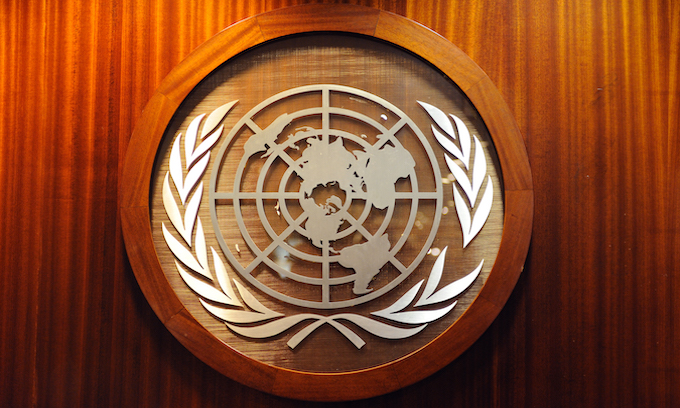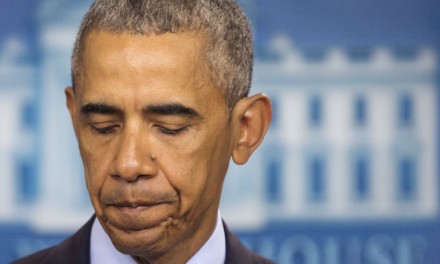In a surprise move just hours before the inauguration of a new president, then-Secretary of State Mike Pompeo accused the Chinese government-heads of the most populous country in the world-of committing genocide. Shortly after his confirmation, the newly minted successor to Pompeo, Anthony Blinken, said he agreed with the previous administration’s classification. Rare common ground was found in a deeply divided Washington.
[T]here’s simply no breaking through the mind-boggling puzzle of bureaucracy that is contemporary international affairs.
Yet, as many on both sides of the political spectrum decry acts of genocide in China, a militaristic coup in Myanmar, and civil war in Syria, no meaningful action can be taken. While diplomacy was once seen as an art, there’s simply no breaking through the mind-boggling puzzle of bureaucracy that is contemporary international affairs. Indeed, one should blame the lack of action on immediate global crises on a stonewalled United Nations.
At its founding, the United Nations was seen as a first step to eternal world peace. With the Universal Declaration of Human Rights heralded as a way to curb the next Holocaust and never again face a brutal, global war of domination, it seemed the sky was the limit. A few years after the UN’s founding, former First Lady Eleanor Roosevelt seemed to shape the very earth we walked on when she famously asked, “Where, after all, do human rights begin?”
Over seven decades later, all indications would show that the United Nations never found the answer to that seven-word question. While the body has made admirable strides towards each of its founding goals of ending war, hunger, and inequality, it has completed none of the above. In fact, one could say its principal body, the Security Council (UNSC), is plagued with inequalities itself.
The UNSC, made up of five post-World War II superpowers, looks far different than it did during its first session in 1946. China, for example, is no longer a republic. There is no longer a placard for the Soviet Union, but rather the Russian Federation. France and the United Kingdom are no longer colonial powerhouses.
Yet, despite the massive changes the UNSC has weathered since its founding, it has yet to change itself. The set-up of the Council is generally the exact same as it was in 1946, with fifteen total members, five of which holding permanent veto powers. For example, the Chinese Communist Party can dismiss a resolution condemning their own brutal treatment of Uyghurs, or Russia can sweep its election meddling under the rug.
While the institution of the United Nations is currently imperfect, the idea alone has potential enough for its perpetual continuation. As such, it needs room for comprehensive reform, yet not in a way that makes the possibility easy to reach. Currently, an amendment to the UN Charter requires two-thirds of each member country and General Assembly member to ratify, as well as the unanimous consent of each permanent UNSC nation. It’s time to drop the final requirement.
Perhaps the most glaring issue facing the United Nations is the make-up of the Security Council itself. Despite the fact that World War II ended decades ago, the United Nations is still in a defensive position against the developing world and former colonial states. Chief among the victims of this outdated membership scheme is India, a country that represents roughly 18% of the global population. If the United Nations is to be effective, it must be democratic. India, as well as other future powerhouses, shouldn’t be punished simply because they weren’t so immediately after World War II. How could one of the most influential bodies in the world not give proper representation to over a billion people?
THE STRUCTURAL FLAWS OF THE UNSC
A key ally to the West, India has been constantly overshadowed by its northeastern neighbor, China. Whereas India is just beginning its dive into manufacturing and cultural dominance, China received a head start during the presidency of Richard Nixon. Indeed, India’s potential and sheer size alone ought to make it eligible for a permanent seat on the UNSC. It is, after all, more democratic than two permanent members of the Council.
Simply put, it isn’t the results-oriented body it was first envisioned to become.
India’s exclusion, however, speaks to a larger issue within the United Nations. Simply put, it isn’t the results-oriented body it was first envisioned to become. As the Syrian War raged on, Russia used its veto power over a dozen times to protect its ally, President Bashar al-Assad, from facing consequences for gassing his own citizens. And, while children starve to death as a result of the ongoing Yemen Civil War, the UN managed to raise a “disappointing” $1.7 billion after requesting over double that amount in 2021.
Coherent dialogue and non-binding resolutions can be valuable as a first step, but rarely do critical solutions get past that phase. This can largely be put, again, on the fact that the UNSC is built to protect the interests of five specific countries.
Should basic democracy prevail within the Council, a unanimous vote wouldn’t be necessary to pass basic resolutions. Rather, a simple majority, or even two-thirds, would rule the day. Then, states like China couldn’t get away with blatant genocide in the Xinjiang province simply because the former republic managed to get a seat over 75 years ago.
Since the Xi Administration enacted the “Strike Hard Campaign against Violent Terrorism” in 2014, Uyghur Muslims have faced re-education, internment, torture, and murder. Estimates indicate that over a million people are in these modern-day concentration camps, which are filled with forced sterilizations, rapes, medical experiments, and propaganda eerily reminiscent of Nazi Germany’s infamous “arbeit macht frei” signs.
One must wonder, with its constant denial of ethnic genocide, its potential plans for invading neighboring Taiwan, its renewed manufacturing strength, and goal of hosting the 2022 Winter Olympics, if modern China is masquerading as a modern Nazi Germany. The similarities are beyond coincidental.
The irony lay in the fact that the United Nations was founded in the aftermath of World War II in hopes of preventing another Nazi Germany from grabbing hold. Now, it’s clear the second-largest economic player in the world is taking advantage of the United Nation’s draconian bureaucracy to get away with murder.
VIOLENT CONFLICTS CANNOT WAIT FOR NON-BINDING RESOLUTIONS
If the United Nations wishes to be fair and equal to all, it’d reform itself to meet its founding ideals. Rather than acting as a global deliberative body in which billions of people are represented, the United Nations is seen as nothing more than a weak wooden guardrail. When the United Nations cannot gather sufficient funds, as seen in Yemen, or put an end to the genocides it was created to stop, as seen in far too many countries since 1945, what is it meant to represent? The only time the world truly looks towards the glistening East River tower is during the week of General Assembly speeches or a coup.
Because of the lack of fluidity that the United Nations holds, Beijing can quite literally get away with genocide because they own the courtroom.
While it is true that change takes time, the United Nations is meant to be a fluid institution, not an imposing brutalist body standing at a disadvantage. Conflicts, especially violent ones, cannot wait on a non-binding resolution or a simple request for more peacekeepers. We’ve seen that strategy fail in Cambodia, Rwanda, and currently, in China.
We shouldn’t wait for the point where we realize that the United Nations is too sterile to get things done, and that war is the exclusive solution. Rather, it’s time to look at the mounting failures from the last several decades and overhaul the decrepit institutions the body stands on.
Maybe the United Nations can’t find the answer to Roosevelt’s iconic question because it’s too focused on ensuring it ends where it’s uncontroversial. Because of the lack of fluidity that the United Nations holds, Beijing can quite literally get away with genocide because they own the courtroom.
Human rights truly begin with representation, especially for the unheard. Every Uyghur or Chechnyan, each member of the Rohingya or Tutsi minorities, watch as the world falls back on the same routine of protecting the powerful to keep the game the same. As they attempt to spread the ideals of democracy and equality around the world, it’s clear the United Nations must return to where it was supposed to begin.
The post Crisis After Crisis Goes Ignored Because of a Stonewalled United Nations. appeared first on Human Events.
© Copyright 2021 HUMAN EVENTS. All Rights Reserved.
—-
This content is published through a licensing agreement with Acquire Media using its NewsEdge technology.



















The UN exists to give the unimportant countries the perception they matter. In a way it is like the woman’s movement that exists to give ugly women some access to the mainstream of society.
AND BOTH are useless.. Which is why TRUMP should have not just pulled us out of the WHO, but the UN ENTIRELY.
“While the institution of the United Nations is currently imperfect, the idea alone has potential enough for its perpetual continuation”?????? Really? The United Nations is a joke and the United Nations is anti – American. America puts the most money into the UN and what do we get out of the UN, except for being spit on. America should withdraw from the UN and America should throw the UN out of our Country. We do not need any part of the Bushes New World Order or the Democrats communism, that is part of the United Nations. The United Nations wants to control the United States and dictate to us, as to how we should live.
SO no matter HOW USELESS it is, cause “The idea of it was good”, let’s keep it??
MAN IS THIS GUY worse than being a dunce, he is two brain cells short of being a MORON.
The absolutely worthless UN should have been disbanded decades ago. At the very least, get them out of the USA.
AND CEASE funding them!!
Being a member of the U.N. is equivalent to being a co-conspirator to a felony.
Especially when you consider the # of “Un missions for peace keeping”, where the PEACEKEEPERS were involved in rapes of those who were in their custody.